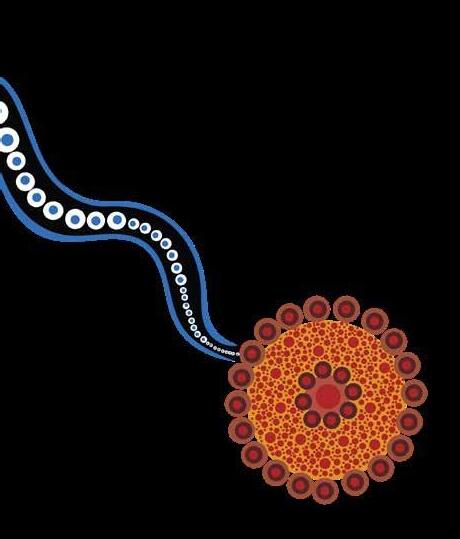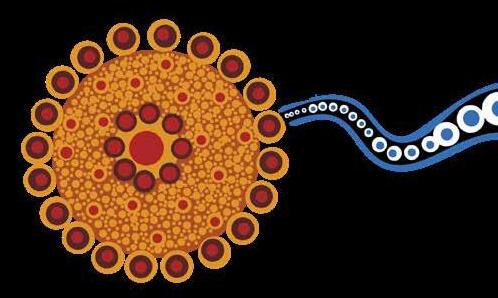FEBRUARY 2025- JANUARY 2027

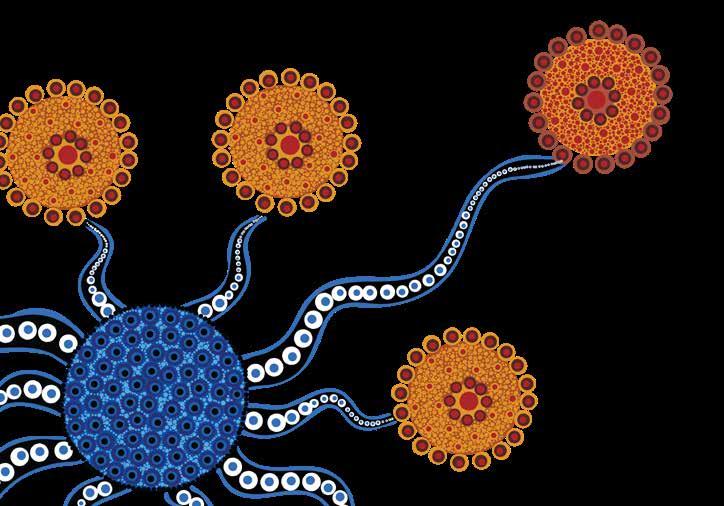




FEBRUARY 2025- JANUARY 2027





Karitane acknowledges the Traditional and Continuing Owners of the land and waters of Australia, and pays its respects to Elders, past and present. We pay tribute to the wisdom, richness, diversity, and resilience of First Nations peoples and cultures.


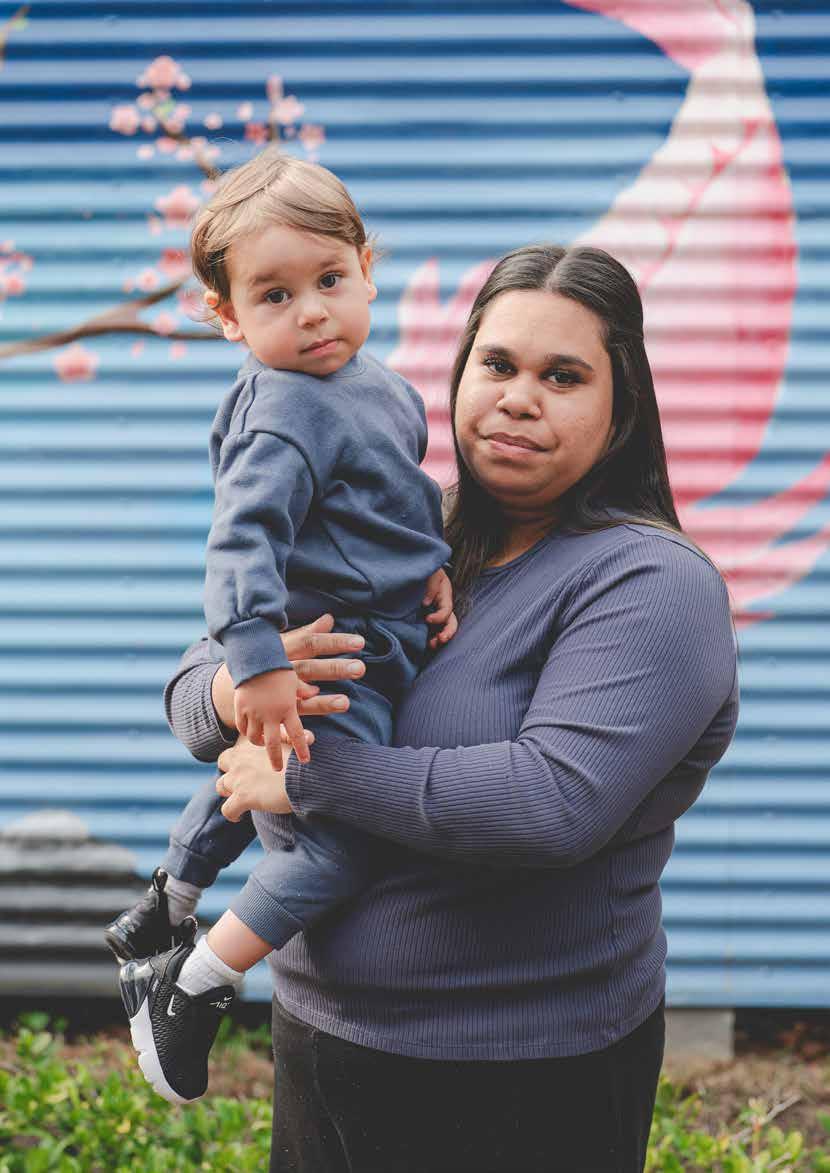
Reconciliation Australia commends Karitane on the formal endorsement of its inaugural Innovate Reconciliation Action Plan (RAP).
Commencing an Innovate RAP is a crucial and rewarding period in an organisation’s reconciliation journey. It is a time to build strong foundations and relationships, ensuring sustainable, thoughtful, and impactful RAP outcomes into the future.
Since 2006, RAPs have provided a framework for organisations to leverage their structures and diverse spheres of influence to support the national reconciliation movement.
This Innovate RAP is both an opportunity and an invitation for Karitane to expand its understanding of its core strengths and deepen its relationship with its community, staff, and stakeholders.
By investigating and understanding the integral role it plays across its sphere of influence, Karitane will create dynamic reconciliation outcomes, supported by and aligned with its business objectives.
An Innovate RAP is the time to strengthen and develop the connections that form the lifeblood of all RAP commitments.
The RAP program’s framework of relationships, respect, and opportunities emphasises not only the importance of fostering consultation and collaboration with Aboriginal and Torres Strait Islander peoples and communities, but also

empowering and enabling staff to contribute to this process, as well.
With close to 3 million people now either working or studying in an organisation with a RAP, the program’s potential for impact is greater than ever. Karitane is part of a strong network of more than 3,000 corporate, government, and not-for-profit organisations that have taken goodwill and intention, and transformed it into action.
Implementing an Innovate RAP signals Karitane’s readiness to develop and strengthen relationships, engage staff and stakeholders in reconciliation, and pilot innovative strategies to ensure effective outcomes.
Getting these steps right will ensure the sustainability of future RAPs and reconciliation initiatives, and provide meaningful impact toward Australia’s reconciliation journey.
Congratulations Karitane on your Innovate RAP and I look forward to following your ongoing reconciliation journey.
Karen Mundine Chief Executive Officer Reconciliation Australia
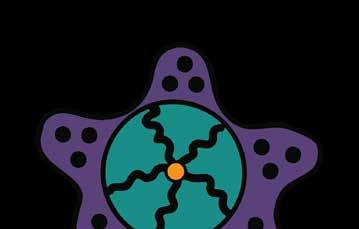

At Karitane, we are dedicated to fostering an environment where innovation and reconciliation walk hand in hand. Karitane’s Innovate Reconciliation Action Plan (RAP) embodies our commitment to building a future that acknowledges our history, honours First Nations peoples and cultures, and creates opportunities for a united and impactful future.
Karitane envisages an Australia in which relationships between First Nations peoples and other Australians are strong: an Australia which acknowledges and addresses the hard truths of our history, and where respect for First Nations peoples, cultures, wisdom, and resilience is embedded in family life, in schools, workplaces and in other institutions, including our own.
Innovation is at the core of our business strategy and the heart of Karitane’s values. However, true innovation extends beyond technological advancements and sector leadership. It is about innovating in our approach to relationships, understanding, and respect. Our RAP commits us to focus on how we engage with First Nations communities, ensuring their voices are heard, their contributions recognised, and their heritage respected.
Our vision is to lead by example, demonstrating that reconciliation is not a box to be ticked but a transformative journey.
This plan outlines Karitane’s commitment to specific actions we will take to embed reconciliation into the culture of our organisation. From fostering inclusive workplaces, enhancing education, to supporting First Nations businesses, each initiative a step toward a more equitable and inclusive society.
We are all personally committed to driving this agenda forward, ensuring that our actions today pave the way for a brighter tomorrow. We encourage everyone at Karitane to embrace this plan with the same passion and dedication that defines our pursuit of innovation.
Karitane’s CEO, Grainne O’Loughlin, Karitane Senior Aboriginal Health Education & Liaison Officer, Auntie Freda Simpson and the Karitane Board Chair, Lee Carpenter
Together, we hope to create a legacy of reconciliation and innovation that will inspire others to follow.



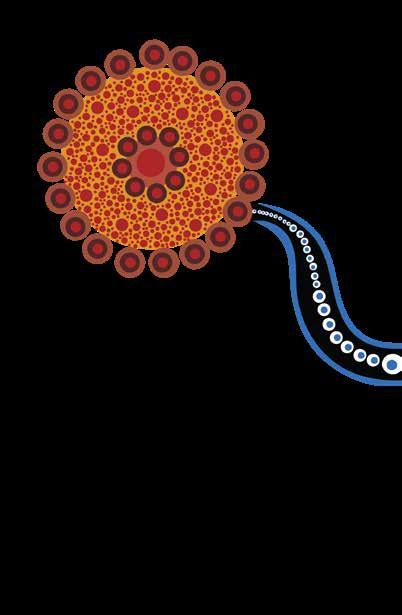
1.

2. 3.
FIRST NATIONS FAMILIES ARE EMPOWERED DURING THE EARLY YEARS OF THEIR CHILDREN’S LIVES TO BE HEALTHY, CONFIDENT AND RESILIENT, ENABLING THEIR CHILDREN TO HAVE THE BEST START IN LIFE. THEY EXPERIENCE KARITANE AS A RESPECTFUL AND TRUSTED EARLY PARENTING SUPPORT SERVICE.
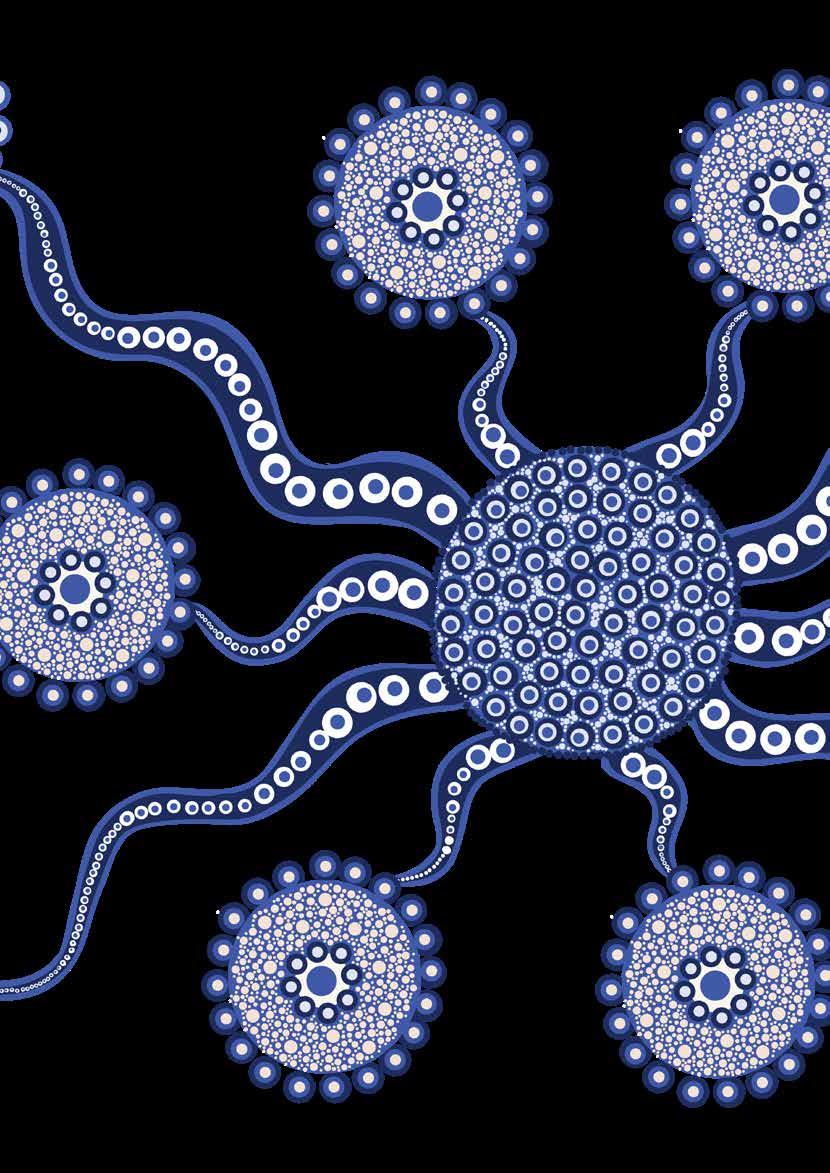
KARITANE HAS AUTHENTIC, RECIPROCAL PARTNERSHIPS WITH FIRST NATIONS COMMUNITIES AND ORGANISATIONS, AND IS HIGHLY CAPABLE AT BOTH FOLLOWING AND TAKING AMBITIOUS LEADERSHIP INITIATIVES WHEN APPROPRIATE. PLANNING AND DELIVERY OF KARITANE SERVICES IS INFORMED AND CONTINUOUSLY GUIDED BY FIRST NATIONS PEOPLES’ VOICES AND EXPERIENCES.
4. 5.
KARITANE IS AN INCLUSIVE AND CULTURALLY SAFE EMPLOYER OF FIRST NATIONS STAFF.
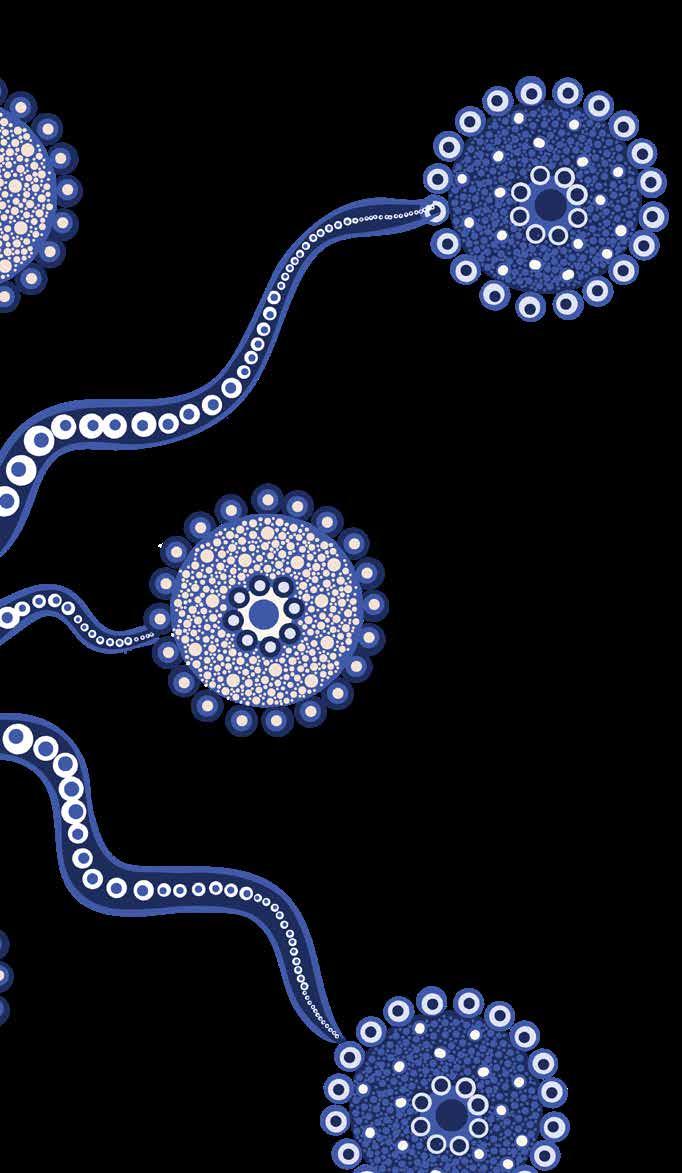
6.
EVERY MEMBER OF THE KARITANE TEAM PLAYS A PART IN WORKING IN CULTURALLY RESPECTFUL WAYS, CREATING CULTURALLY SAFE SPACES FOR FIRST NATIONS FAMILIES IN OUR CLINICS AND PROGRAMS.
STUDENTS IN THE CHILD AND FAMILY SECTOR ARE WELL INFORMED ABOUT FIRST NATIONS CULTURES, HISTORIES, STRENGTHS, TRUTHTELLING , CONTRIBUTION TO SOCIETY AND PARENTING PRACTICES. THEY ARE READY TO CONTRIBUTE TO CULTURALLY RESPECTFUL AND SAFE SERVICES AS THEY ENTER THE WORKFORCE.

KARITANE is an affiliated health organisation, not-for-profit and registered charity with over 100 years’ experience supporting families to enable children to have the best start in life. We do this by providing a range of accessible specialist early parenting services to support families around Australia with children from birth to five years.
WE SUPPORT PARENTS, face-to-face and virtually, with challenges around sleep and settling, feeding and nutrition, establishing routines, toddler behaviour and perinatal and infant mental health.
WE ARE ALWAYS WORKING ON NEW WAYS TO CONNECT with parents and their families. We offer place-based integrated child and family hubs, residential services, virtual support and hybrid models of care supporting parents and adapting to the changing needs of families to improve accessibility to support in the right place and at the right time.
RESEARCH AND EDUCATION ARE THE FOUNDATIONS OF OUR PRACTICE. Our evidence-based services are delivered by a highly trained, multidisciplinary team. We work within a Family Partnership Model supporting attachment-based relationships through a child-centred framework and trauma-informed practice.
WE OFFER PLACE-BASED SERVICES AS WELL AS A NATIONWIDE VIRTUAL VILLAGE, allowing us to develop effective hybrid models of care. Virtual services are offered in NSW, Tasmania, Queensland, South Australia, ACT, Victoria, Western Australia, and the Northern Territory. In NSW, Karitane offers services at sites including Bankstown, Carramar, Campbelltown, Fairfield, Fairfield Heights, Forster, Gloucester, Liverpool, Macarthur, Manning Vale, Miller, Oran Park, Randwick, Shellharbour, Maryland, Taree, and Wolli Creek.

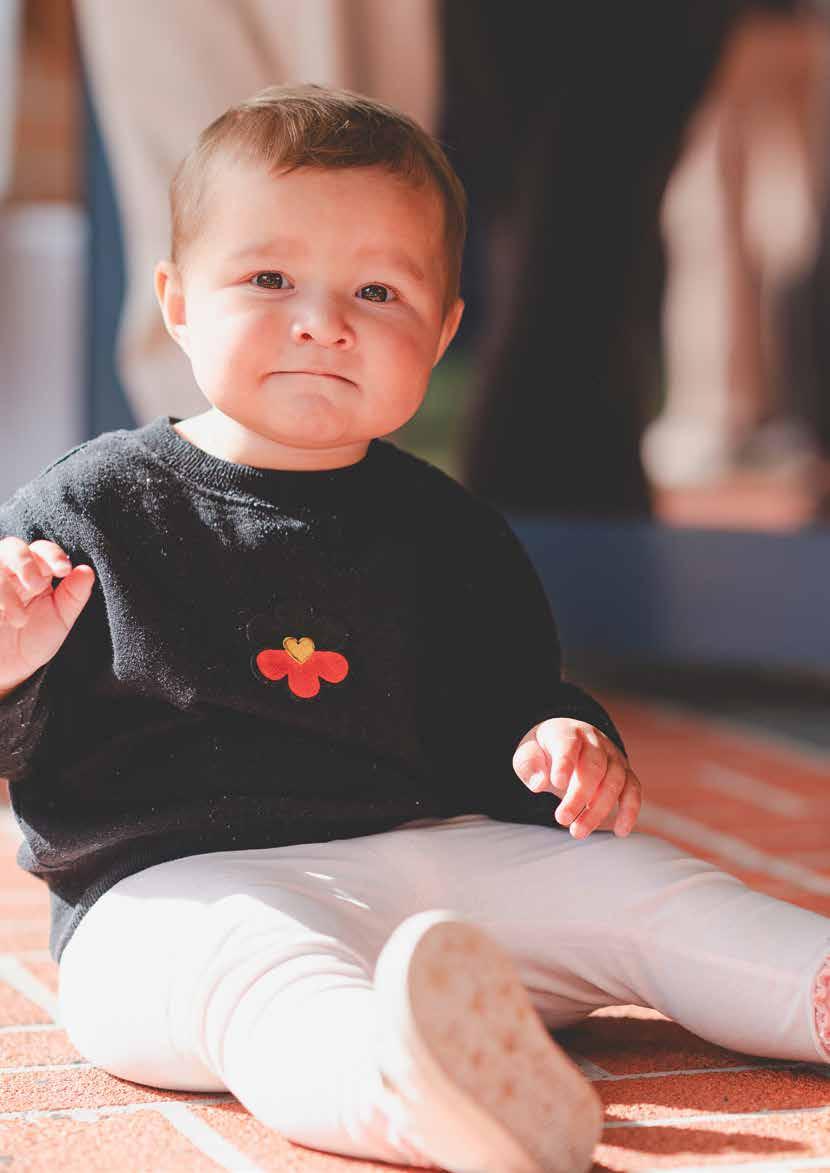
Our services are delivered by a multidisciplinary team which works with each family, with a robust triage system in place to ensure we match the right service to their individual needs.
The primary reasons for referral are sleep and settling, feeding, toddler behaviour, adjusting to parenting and mental health.
Karitane is committed to providing culturally safe and appropriate care for First Nations families. Karitane’s Senior Aboriginal Health Education and Liaison Officer, Auntie Freda Simpson, works across the organisation to support and strengthen relationships between clinicians and First Nations families and to build relationships with external First Nations partners and communities. She engages with families at first contact through our centralised intake team and continues to support each family through their service provision and discharge planning process.
Early intervention services provide targeted support to improve health and wellbeing outcomes of children and families with identified health concerns or social vulnerabilities. Our range of early intervention services include virtual breastfeeding clinics, integrated child and family hubs, parenting centres, virtual home visits, a national perinatal mental health navigation service and community programs.
Working together in partnerships is the foundation that enables us to deliver the best wrap-around services for families. Through our experience in developing integrated care hubs and models of care within the child and family ecosystem, we have witnessed firsthand the transformative power of collaboration.
We are committed to working with the child and family professional network across the health, non-government/not for profit, community, education, disability and philanthropic sectors to deliver integrated care and support to parents. These hubs are designed to engage families with vulnerabilities in early intervention services, reducing health inequity and providing essential wellbeing support for children and families – all in pursuit of providing a lifetime of benefits to each child.


We offer virtual breastfeeding clinics five days a week. This allows us to provide timely support for improved breastfeeding outcomes.
Our hybrid model of care means parents can access either or both place-based and virtual consultation options. Client feedback tells us that choice and flexibility is a key factor in how and when families engage with services. Our integrated child and family hubs focus on equity and access, bringing services closer to communities with additional vulnerabilities by increasing access touchpoints, such as outreach at playgroups and community events. Integrated child and family hubs offer a place-based approach, reflecting strengths and challenges, and matching the needs, of the community.
ForWhen is a free national perinatal and infant mental health care navigation service for new and expectant parents, available in each state and territory. Following triage and screening, we connect parents to services and supports that best match their needs, either online or in their local area. Cultural decision making about ForWhen services, cultural safety and marketing materials is guided by an Aboriginal Community of Practice Group.
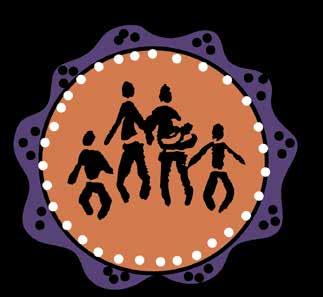
We provide a range of community groups and programs to support parents and carers with young children - from prenatal to school age - to develop positive relationships with their children, nurture their learning, as well as their social and emotional experiences of the world. We support families from a wide range of backgrounds and experiences, including people with culturally and linguistically diverse backgrounds, new migrants, refugees, and First Nations communities.
The Karitane Linking Families team (KLF) work in partnership with families who have children aged 0–5 years and may experience parenting challenges. Case management support provides parenting information, skills and strategies, and referrals to other services – including welfare support, early education and community health. We facilitate seven supported playgroups, including the Lil Possums group, which has supported First Nations families for more than 20 years. The playgroups focus on increasing child development and literacy for young children and promoting connections for families.
Village Connect started in early 2023 to improve the overall safety, well-being, resilience, and lifetime trajectories of parents aged 25 years and younger, who are pregnant or have children in South West Sydney. Working with Uniting and Sonder, Karitane helps parents at critical points in their parenting journey through fast-tracked access to our Residential Unit and Toddler Clinic, parent training and education, referral for allied health supports, peer support through group programs and play groups, and most importantly, support to navigate the complex family and early childhood sector. This service was designed by the Aboriginal Core Design Group and continues to receive cultural advice and approvals from the Southwest Sydney Aboriginal Community Consultation Group.
We support young parents through parent education, and case management to ensure they can achieve their goals of further education and employment. This peer educator training course for young parents is a recognised pathway into TAFE NSW and gives young people the foundations of the Community Services Certificate III qualification. Young parents also get opportunities to develop their professional skills by presenting to high school students about healthy relationships, the realities of being young parents, and consent, aligned to the school curriculum.
This program matches trained volunteers with families for one-on-one support to increase parenting confidence and the families’ connections to the community. We have an ongoing partnership with Western Sydney University, the Benevolent Society and Save the Children to deliver these evidence- based programs. We offer VFC across three locations in New South Wales – Taree, Southwest Sydney and Shellharbour region. In Taree, we have continued to grow and develop our VFC program specifically for First Nations families with young children. In 2023 we were involved in the opening of First Steps Count Family Hub in Taree. We have also boosted our collaborations with Forster Women’s Shelter and Tobwabba Aboriginal Health Services.
With the support of our Mission Australia funding partners, we now offer a continuum-of-care approach for our PCIT with the addition of a new family coaching model for families living within the 2168 postcode. PCIT provides parents with the skills and confidence to manage behaviours of concern in their child, as well as strengthen their relationship with that child. Family coaching allows families to engage in support around developmental areas such as language, movement, cognition and social skills, nutrition, sleep and settling, behaviour, and access to community supports.
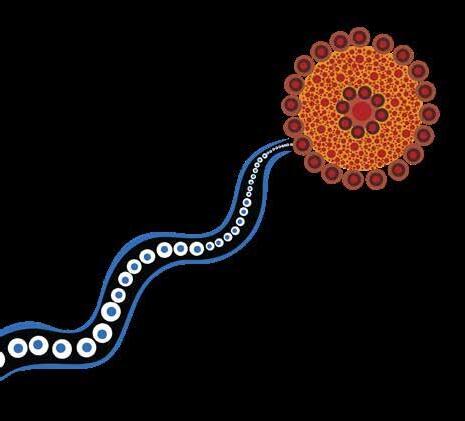
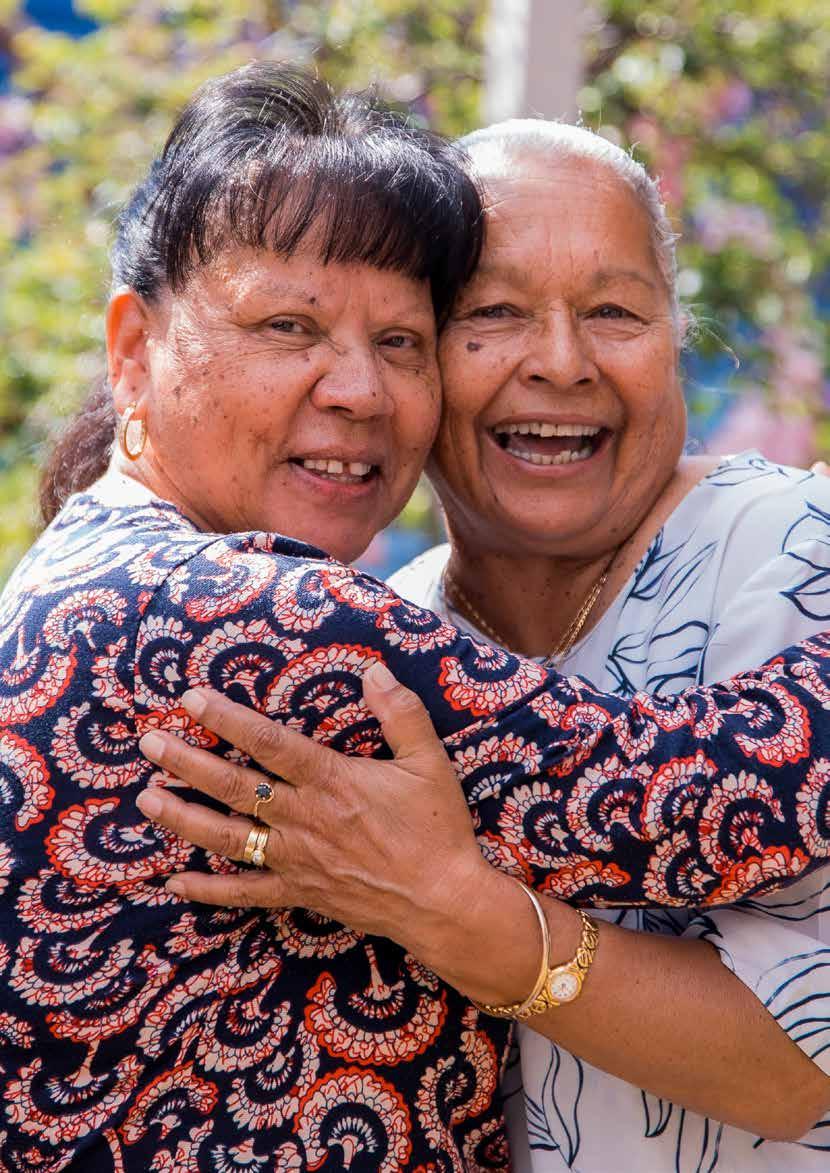
In Taree, we have worked with funding partners Mission Australia to establish the First Steps Count integrated child and family hub navigator role. The navigator engages with First Nations families and works closely with the local community to ensure services are culturally safe and welcoming.
EPEC is an intervention facilitated by parents. It requires practitioners and services to embrace a culture of practice that includes parents as co- workers, coreflectors, and co-learners in partnership with professionals. The EPEC model challenges traditional hierarchical service constructs and levels the playing field to enable community members to work alongside practitioners to deliver parenting interventions. The active involvement of parent facilitators gives credibility to the system in the eyes of families that have previously found services difficult to access. We thank the organisations that fund EPEC groups: Mission Australia (Taree), DCJ (southwest Sydney).
Our intensive support services provide comprehensive multi-disciplinary care to families with a complex range of needs. These services include residential stay, a virtual residential parenting service, toddler clinics, and perinatal and infant mental health services.
We provide a stepped-care approach to perinatal mental health support for parents experiencing mild-to-moderate mental health challenges. Our approach focuses on supporting parents to improve the quality of the relationship with the infant. We provide individual consultations and evidence based therapeutic groups, with families working in partnership with our multidisciplinary team.
Our residential stay parents receive 24hour support from our team of health professionals. We work in partnership with families to address their parenting concerns, providing information and encouragement. Our residential services have been relocated to a new purpose-built facility in Campbelltown which offers 19 rooms to families across NSW with multiple double rooms accommodating families as well as a culturally welcoming room for First Nations families.
The VRPS includes 10 virtual residential parenting service beds, providing accessible and flexible 24-hour support for each family when they need us. Providing virtual support has many benefits, including improved access, reduced time and expenses for travel, and increased confidence in implementing post-discharge the strategies learnt.
At our toddler clinics, we offer evidencebased parent-child interaction therapy (PCIT) for families with children who display physical and verbal aggression, non-compliance, tantrums, destructive behaviour, hyperactivity, sibling rivalry, anxiety and withdrawal. PCIT strengthens the parent-child relationship, providing parents with strategies to better manage challenging moments. This program often uses telehealth to support families across NSW.
Karitane conducts research to inform the evidence base of our clinical service delivery; to contribute to wider knowledge and scholarship; and to ensure families receive the best interventions, advice and support available. Our research relationship with University of New South Wales (UNSW)’s discipline of Psychiatry and Mental Health has developed a wellrecognised perinatal and infant mental health research program at Karitane. It provides leadership for the development of perinatal and infant mental health services within Karitane, and contributes to UNSW undergraduate and postgraduate training, and supervision of Higher Degree Research students.
Karitane offers professional development and training for healthcare professionals, including parent-child interaction therapy training, family partnership training, toddler workshops, and specialised workshops on sleep and settling, brain development and toddlers. We lead the Western Sydney University Master in Child and Family Health (Karitane) degree.
We are focused on building workforce capacity. By forging partnerships with Australian universities and other academic colleagues, Karitane has created new graduate programs and innovative virtual student placements. We continue to lead education and training for the child and family, and perinatal infant and child mental health workforces across Australia.


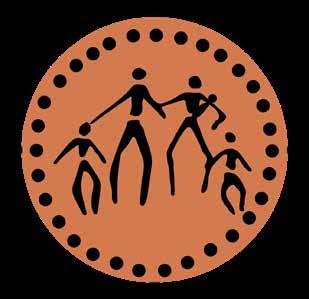


Karitane currently employs 169 people including child and family health nurses, perinatal infant mental health nurses, paediatricians, general practitioners, social workers, psychologists, psychiatrists, and cultural and community support workers. About a third of our staff identify as culturally and linguistically diverse. Currently, 6 staff identify as Aboriginal people. Karitane engages 53 community volunteers.
Karitane’s purpose is to provide reliable expert guidance on early parenting, empowering families and children to thrive with health, confidence and resilience. We enable children to have the best start in life. Our strategy is to:
• Develop a progressive and impactful organisation.
• Continue to evolve and innovate consumer-led services.
• Engage skilled people in a supportive, collaborative, and productive culture.
• Further strengthen partnerships and collaborations that enable our vision.
• Achieve sustainable growth.
Our RAP is integral to this strategy.

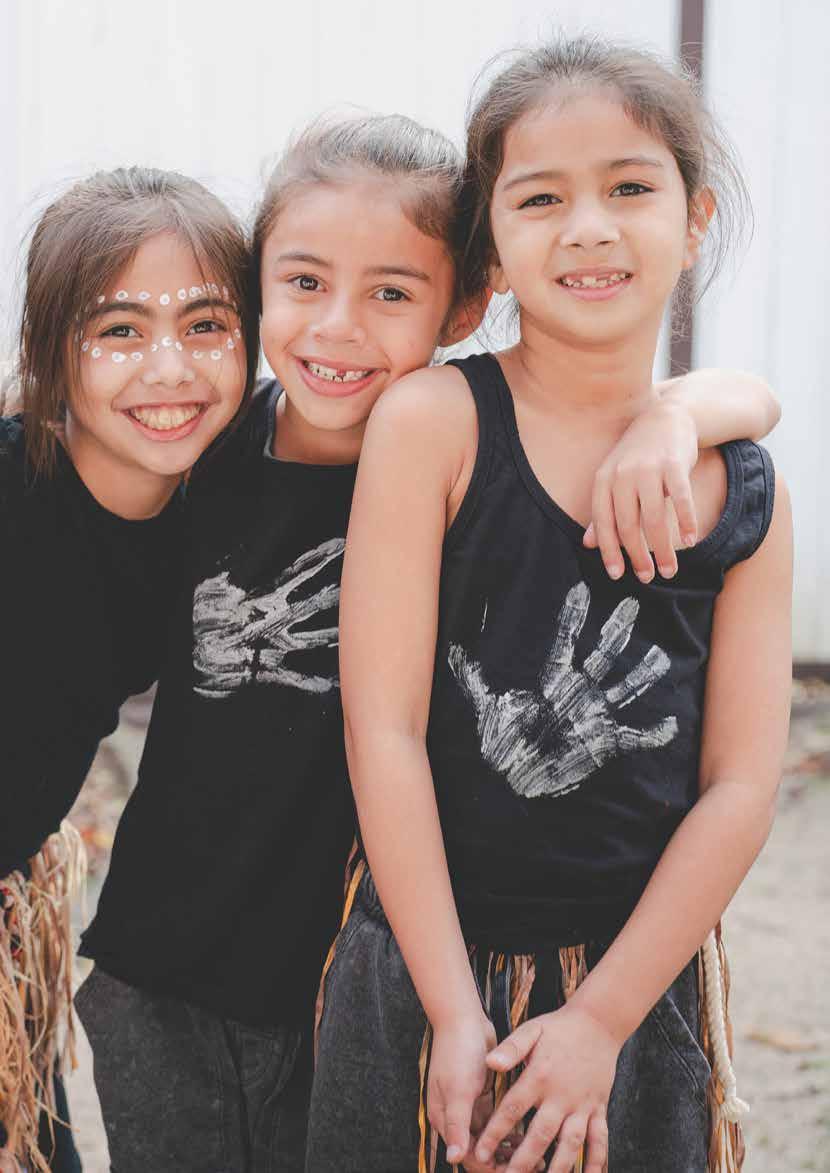
Karitane has been providing direct services to First Nations families for at least twenty years. An Aboriginal Health Committee with external members was established by Karitane in 2015, setting First Nations peoples’ health as a key priority for Karitane, the Board, and its Senior Executive.
The committee first developed a Karitane Aboriginal Health Action Plan which committed Karitane to acknowledge and celebrate key events in the First Nations calendar; to be culturally competent and to provide secure and accessible services to First Nations clients and their families; to maintain effective linkages and referral pathways with Aboriginal Health Services; to support and expand its First Nations workforce; and to ensure appropriate education, training and development of the Karitane workforce in First Nations-related matters.
Developing Karitane’s Reflect Reconciliation Action Plan October 2022-March 2024 was Karitane’s next step on the reconciliation journey. Guided by the Aboriginal Health Committee, Karitane decided to develop a Reflect RAP to ensure firm foundations were laid for meaningful and sustainable reconciliation in future years.
Development of a RAP has been prompted by Karitane’s commitment to the National Agreement on Closing the Gap and has been strongly encouraged and supported by the Karitane Board.
In September-October 2023, Karitane began to review the impact of our Reflect RAP and of our firm expression of support for the Voice to Parliament in the October 2023 referendum. We identified highlights, unexpected outcomes, challenges, and areas for further development. Progress against anticipated outcomes was considered: such as developing awareness; respect; engagement; relationships; service design and delivery; employment, retention, and professional development; opportunities; and the completion of RAP deliverables.
In November 2023, we were delighted to appoint a Senior First Nations Lead to provide cultural supervision, support within Karitane, and develop a community of practice for First Nations Liaison Officers and Navigators employed across each state in the ForWhen program.
In December 2023 Karitane held a RAP Working Group (RAPWG) workshop to further extend our vision for reconciliation and to consider and prioritise the key deliverables for an Innovate RAP. In February 2024 we conducted a staff survey on reconciliation to measure the outcomes of our Reflect RAP and inform Karitane’s Innovate RAP which was finalised in MarchJune 2024. What we discovered in the staff survey is outlined below, along with the impetus for our 2025- 2027 RAP.
Our review, staff survey and RAP planning processes have been completed in partnership with, and facilitated by, the Burbangana Group, a First Nations owned and led consulting company.
Karitane’s CEO, Grainne O’Loughlin is the RAP Champion.
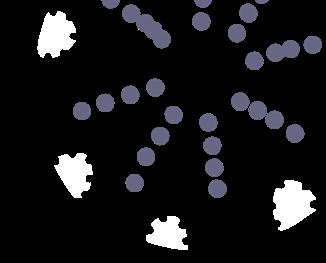
The RWG comprises senior leaders and key staff engaged in nursing, social work, mental health, community programs, health education, volunteer services, workforce education and business development across Karitane, including four First Nations staff members. Membership has evolved over the past 2 years with staff movements, retirements and new staff expressing interest in joining the committee. The Karitane RAPWG consists of:
Auntie Freda Simpson
Joy Makepeace
Angela Wood
Grainne O’Loughlin
Kay Souter
Lee Bratel
Lisa Reeve
Sharlene Vlahos
Suzanne Calman
Emily Kawalilak
Jo Ubilla
Kirrily Stapleton
Latoya Corbett
Keri Harris
Rachael Van Haarlem
Senior Aboriginal Health Education Officer and Liaison Officer
Aboriginal Community Engagement and Cultural Lead, ForWhen
Director Clinical Services
Chief Executive Officer
Manager Perinatal and Infant Child Mental Health
Community Programs Manager
Clinician Nurse Specialist
Director Education and Business Development and Executive Manager Community Programs Team
Nurse Unit Manager, Residential Service
Director Marketing and Communication
Program Lead Systems Navigator, Village Connect
Administrative Assistant, Village Connect
Aboriginal Health Education Officer, Village Connect
Facilitator, Empowering Parents Empowering Communities
Administration Officer, Fairfield Integrated Child and Family Hub
Karitane staff have become increasingly engaged in reconciliation. Our staff survey on reconciliation conducted in February 2024 had a 56% response rate. Well over half the respondents (59%) felt more engaged in reconciliation at Karitane over the past two years and 54% reported feeling more engaged in reconciliation in their life outside work. A majority (60%) reported an increase in their confidence to engage with reconciliation.
Most respondents envisaged significant outcomes from Karitane’s RAP including building cultural competence, collaborating with service providers, a safe welcoming service for First Nations peoples, increasing First Nations staff, building respect within Karitane for First Nations cultures, diversity, strengths, resilience and contribution to society, and a culturally safe workplace for First Nations staff.
In 2023 Karitane opened a new early parenting service and residential unit in Campbelltown in partnership with South Western Sydney local health district. The Campbelltown building had been a mental health youth facility. Given the difficult history of this site and its associations with constraints, Karitane initiated a cleansing ceremony to be held in September 2023, conducted by Karen Beetson, then Deputy Director Aboriginal Heath, SWSLHD who has a long association as a member of Karitane’s Aboriginal Health Committee. The ceremony was attended by at least forty staff, many of whom have told us they found it a profoundly meaningful and moving shared experience. This experience deepened staff engagement in a positive and unpredictable way.
At our Innovations Day, 1 March 2024 for all staff, Grainne O’Loughlin introduced the RWG. Auntie Freda Simpson presented a history of Karitane’s work with First Nation families and described the development of our Reflect RAP. Three new Karitane staff - Kirrily Stapleton, Latoya Corbett and Joy Makepeace described their experience of joining Karitane, giving their insights and observations. Outcomes of the Reflect RAP and learnings from the staff survey were shared, along with Karitane’s vision for reconciliation. Jo Ubilla, program lead of Village Connect, recorded a beautiful and powerful, live graphic image of Karitane’s RAP journey for Karitane during the session. Joy Makepeace also shared the story of the ForWhen program’s commissioned piece of Aboriginal Art which she created.

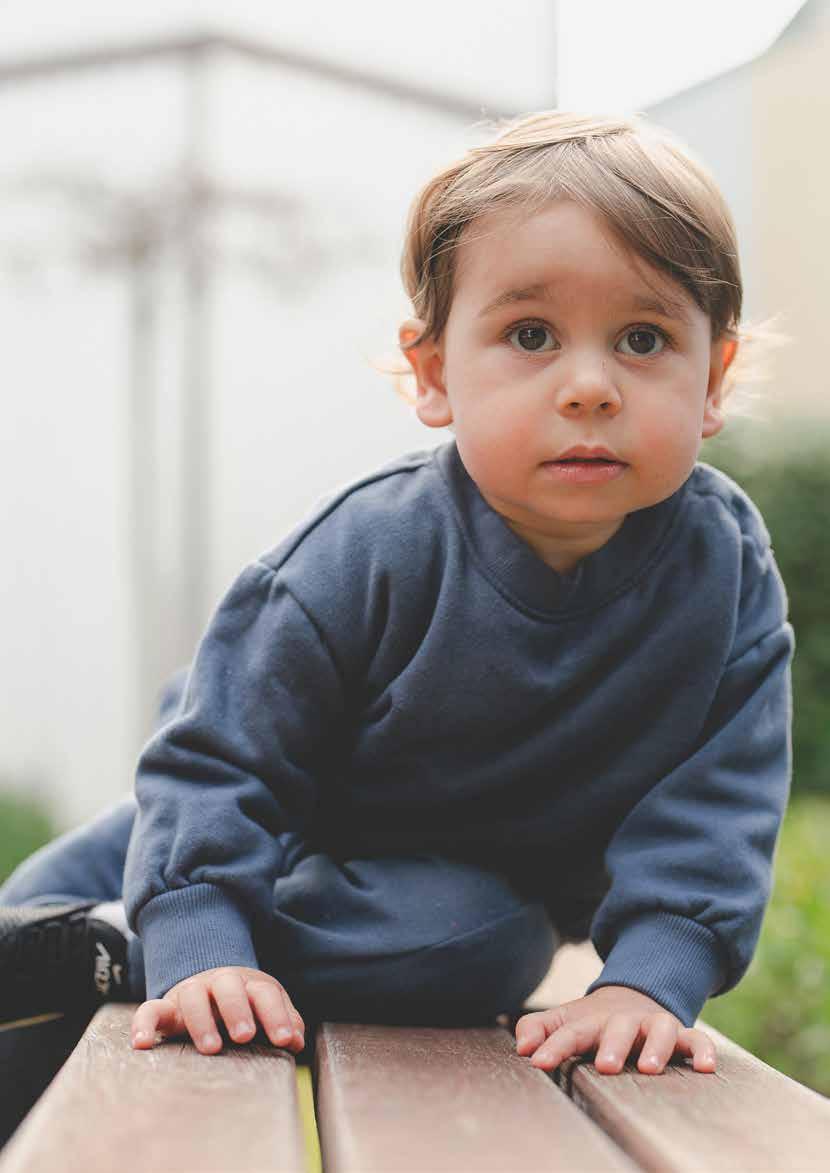
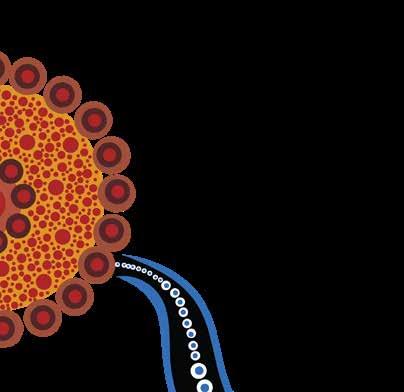

Auntie Freda Simpson is a proud Wiradjuri woman with bloodline connection to the Kamilaroi Nation and Eora Clan through her father’s heritage. She started her journey with Karitane 26 years ago as a volunteer supporting families in the home visiting program. Auntie Freda was instrumental in developing Karitane’s Lil Possums Aboriginal Playgroup which has been supporting First Nations families in the southwest Sydney area for over 20 years, offering families an opportunity to yarn with other First Nations parents in a supportive environment. Auntie Freda works in partnership with Bonnyrigg Public School to provide opportunities for young First Nations children to access culturally responsive early learning, while facilitating a supported transition to school.
In addition to her role as Playgroup Facilitator in 2018 Auntie Freda has been supporting families throughout Karitane Services state-wide as the Senior Aboriginal Health and Education Liaison Officer to improve accessibility, a warm and culturally safe welcome and support for First Nations families as well as connection to community.
Auntie Freda has been an integral part of the Karitane team in various roles throughout her successful and inspirational career and has created rich, relationships with many organisations across the child and family community.
Joy Makepeace
“I am a proud Kamilaroi Murrawarri woman from Walgett, New South Wales. From the moment that I joined Karitane it felt like home and a safe place to work. I felt thoroughly welcomed, seen, heard and valued right from the start. Karitane is an amazing service with real heart, soul and love for the important perinatal work that they are doing in and with the community.
I admire the reconciliation actions that are occurring on all levels in this organisation. The future vision and directions of this service, aiming to increase First Nations employment, community engagement and culturally specific and designed services is truly exciting. Implementing recommendations and embracing change is at the forefront of our RAP Champion and CEO’s mind. This is reassuring.” Joy Makepeace – Aboriginal Community Engagement Practice Lead
“I am a proud Noongar woman from the southwest of Western Australia. My cultural heritage is deeply meaningful to me, and I'm grateful that Karitane has embraced and encouraged its presence in the workplace. My team members are enthusiastically engaging in learning more about our cultures and how to show them the respect they deserve. Within Karitane, I feel not only valued but truly appreciated as a member of both my team and the organisation as a whole. Since joining in September 2023, I've witnessed incredible progress at Karitane. The Aboriginal room in the residential unit is a testament to the dedication and hard work poured into making our spaces welcoming and inclusive. This commitment to positive change is evident at every level of the company, from top leadership down to every individual. Here, at Karitane, I'm not just a statistic or a mere employee—I'm recognised for my unique contributions and valued as an integral part of the team.” Latoya Corbett – Aboriginal Health Education Officer
Kirrily Stapleton
“I am a proud Barkinji Woman from Bourke, New South Wales. When looking for a new workplace I knew that a workplace that respected Aboriginal and Torres Strait Islander cultures was a big part of me. I came
from a workplace that had voted (before I started) to not do an Acknowledgement of Country. Coming from a workplace that voted this way really made me reflect more on my culture and look further into my next workplace’s RAP. Joining Karitane has been nothing but warm and welcoming. Being invited to join the RAPWG was such an honour, and I’m so pleased to work at such a beautiful welcoming place.” Kirrily Stapleton – Administration Officer

Karitane has focussed our efforts on building relationships with a range of First Nations communities and organisations. This has included building meaningful engagement about community programs on Tharawal/Dharawal, Dharug, Gadigal, Wodi Wodi, Worimi and Biripi Countries, with staff also based on Turrbal, Kaurna and palawa1 Countries. Karitane built new links on a national level through our attendance at the 2023 SNAICC National Conference in Garramilla (Darwin) with 7 staff attending.
Our staff survey revealed that 51% of people were working weekly or monthly with First Nations families, individuals or organisations. 23% were working more often with First Nations organisations and 18% were working more often with First Nations staff in other organisations.
Karitane proactively engaged our organisation to raise awareness of the 2023 federal referendum on proposed changes to the Australian Constitution. In the spirit of reconciliation, Karitane supported the legitimate, authentic representation and empowerment of First Nations peoples to have a direct voice in the laws and policies that impact them, by supporting a constitutionally enshrined Voice to Parliament.
We encouraged all staff to be informed about the upcoming referendum and provided information resources from reputable sources. We communicated the significance of the referendum and the sensitivities associated with public debate for First Nations peoples, and the importance of ensuring our workplace remained a safe and supportive environment. Karitane publicly released our statement of support for the Voice to Parliament and the Karitane CEO added her support as “Directors for the Voice” campaign. We reached out to all First Nations staff in the days following the referendum result to offer our support. Staff were given time to assimilate and grieve and offered time to reflect on the outcome. Staff expressed that they wanted to be at work amongst trusted colleagues whom they knew would be empathic and supportive. It also then made the team express a greater determination to ‘double down” to play our part in reconciliation, respect and empowerment. We also offered staff formal supports and EAP.

Half the Karitane survey respondents (52%) reported that the referendum result has not affected their interest in and commitment to reconciliation, while another 36% reported they were now more interested/ committed than before.
1 We note that
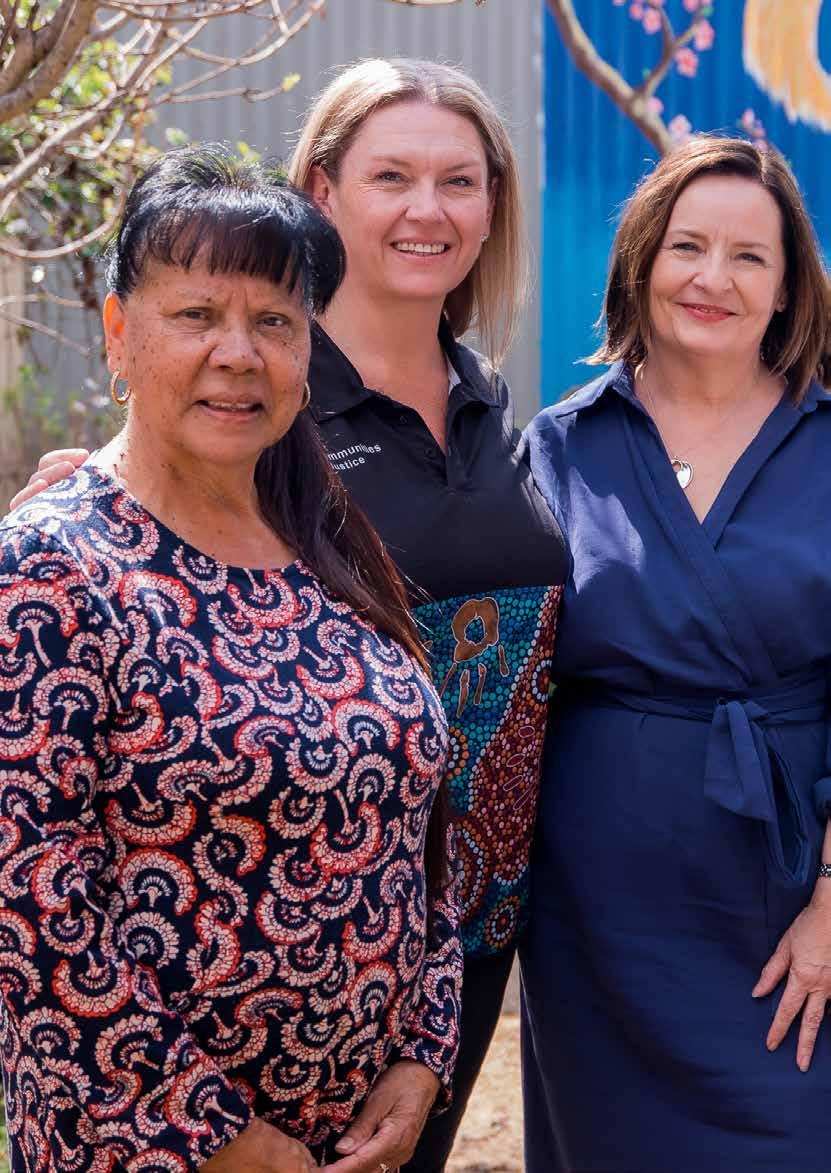
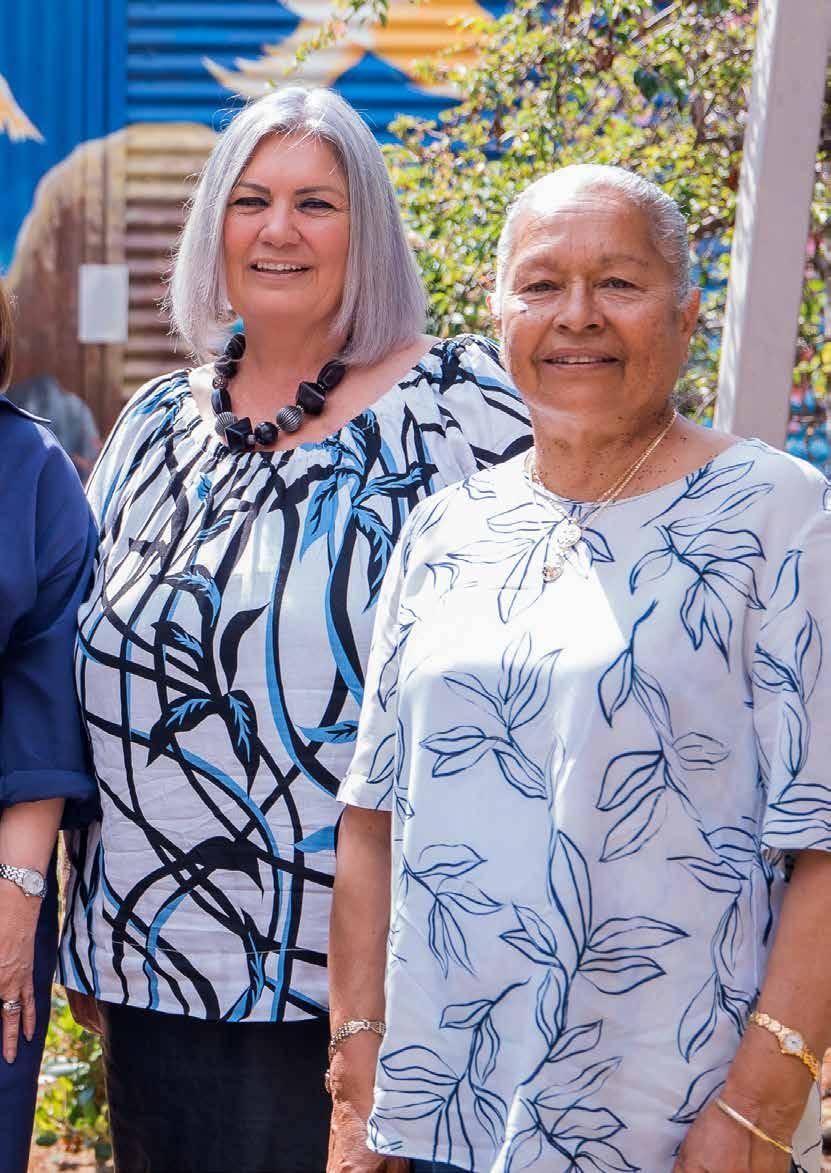
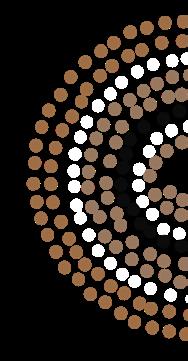
Karitane has attracted more First Nations staff. With input, advice and support from First Nations staff, Karitane has redesigned position descriptions and the wording of job advertisements and changed where we advertise. This process has generated invaluable learning and confidence that our new approach will attract more people, getting it right for First Nations people and everyone.
New First Nations staff have been appointed to First Nations identified roles, such as the Aboriginal Community Engagement Practice Lead, ForWhen Program and the Aboriginal Health Education Officer for our young parents’ program in southwest Sydney, as well as to general staff roles within Karitane.
A third of our staff survey respondents (33%) reported they are now working more often with First Nations staff at Karitane.
We are receiving feedback that Karitane is becoming better known in some First Nations communities and as a service that First Nations families want to connect with. More First Nations families are engaging with our services, including those at the Toddler Clinic, the Residential Unit, Village Connect, the ForWhen program, and at Taree on Biripi Country.
Half of our staff survey respondents (51%) reported they were working weekly or monthly with First Nations families, individuals and/or organisations. 17% were working more often with First Nations clients and 40% reported increased confidence in engaging with First Nations clients.
“I’ve been at Karitane a long time. I see a shift. We are talking more about First Nations families. We are more deliberate, supportive, respectful. There is a shift in commitment. I hope it feels to First Nations staff more like a partnership. Now it’s seen not just as Auntie Freda’s responsibility. People are asking the question how do we become a culturally safe organisation? We are continuing to try to reflect on what is working”.
Joanne Ramjan, NUM Randwick
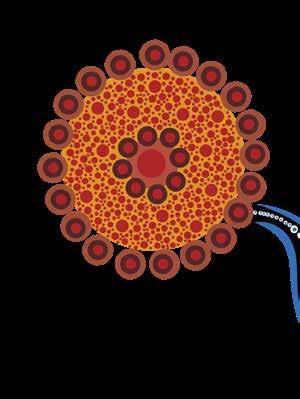

Used with permission
“I just wanted to say thank you for such an amazing, positive stay this week at your Campbelltown Residential Service. The room was so spacious, and we were impressed to see that the room had been decorated with local Indigenous artwork and books and to learn that they had an Indigenous wing dedicated to Aboriginal families.
Every single member of staff that we had the pleasure to meet were so caring and attentive and you could tell that they all genuinely cared about the families they were assisting. Every person we met had remembered our whole families’ names and offered their support at every possible opportunity.
One nurse created a sticker chart for my girls to reward them when they slept in their own bed. Since having their sticker charts my girls have been sleeping in their own bed, the first night in over a year. I truly believe we would not have reached this point without our sticker chart, probably the one thing that I hadn’t thought to try at home.
I no longer feel shame, admitting that I need help to assist with my children’s sleep needs as we were so supported and never made to feel silly. I can’t thank you all enough!
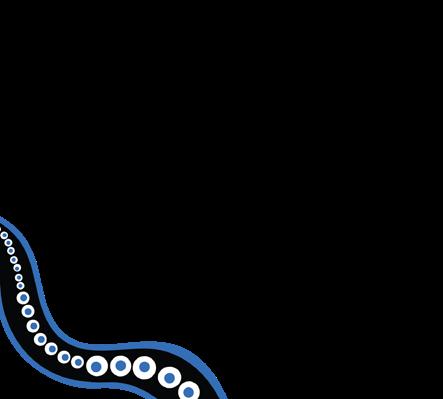
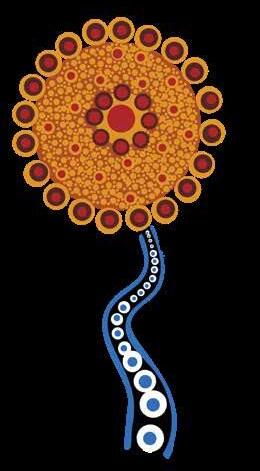

Karitane has taken initiatives to codesign services and culturally sensitive models of care with First Nations stakeholders over the past two years. This has involved consulting widely, not making assumptions and undertaking deep, respectful listening to bring about change in our practices. We also notice more everyday conversations about culturally informed care. We observe that staff have become more culturally sensitive and aware.
“Village Connect involved consultation, codesign and work with the community, including procurement to engage a First Nations artist for our artwork and branding. At Village Connect we use a common approach in intake and support process, instigated by those staff.”
Jo Ubilla, Village Connect Program Lead & Systems Navigator
Culturally Informed Practice Principles (CIPP) were developed by the First Nations Community of Southwest Sydney and Karitane has pledged to commit to their full implementation. We were privileged to be invited by the South Western Sydney First Nations Community to participate in the CIPP video and key messaging released in 2024 by the NSW Government.
engagement
Karitane aims to further deepen staff understanding of and engagement with reconciliation over the next two years.
Cultural sensitivity, cultural safety and inter-cultural capacity building
We aim to implement and embed our culturally informed practice principles (CIPP) and develop the awareness, knowledge, capacities and behavioural repertoire of staff and managers alike.
In the 2024 reconciliation survey, Karitane asked staff to identify their learning experiences so far, as well as their learning interests, and perceived learning needs. We canvassed sources of information they relied on, the contexts in which they have learned and their preferred formats for learning. The preferred formats for reconciliation learning were: activities (72%), information days (56%) and team huddles (29%). We discovered that the workplace was the main source of information about First Nations people for over half (56%) of our staff.
We asked staff specifically what they want to be clearer about and what they want to be able to do differently. Cultural sensitivity/ respect and cultural safety were rated most highly as learning needs, as were practical applications in everyday interactions at work, both for staff and managers. Some staff also want a greater grasp of the dimensions of reconciliation and how they inter-relate.
This survey data will help further shape Karitane’s cultural learning strategy, which is integral to the next phase of our reconciliation journey.
Karitane is currently developing a learning unit on First Nations families, family structure and cultural safety for the Master of Child and Family Health (Karitane) at Western Sydney University for registered nurses and midwives. Consultation is underway on a communications plan to ensure it is culturally led. Our Aboriginal Community and Engagement Cultural Lead will work jointly with our Director of Education and Business Development to achieve this positive outcome.
We plan to enhance our current practice of conducting an Acknowledgement of Country at each site with the development, implementation and communication of a cultural protocol document, including protocols for Welcome to Country and Acknowledgement of Country.
Promoting positive race relations through anti-discrimination strategies
It is our intention to assist leaders and managers to develop greater awareness, skill and confidence to lead in the area of race relations. We see this as an essential step in developing and promoting positive race relations through anti-discrimination and anti-racism strategies.
First Nations employment, retention and professional development strategy
We will give close attention to succession planning and to the employment, retention and professional development of First Nations staff. There is an opportunity to think about how new First Nations staff are supported and continue to be supported.
The Aboriginal Community Engagement and Cultural Lead role is providing cultural support and developing a community of practice for Aboriginal Liaison Officers and Navigators employed across each state in the ForWhen program and other staff, to ensure optimal peer support and opportunities.
Engagement with First Nations stakeholders, RAP and other likeminded organisations
We will further develop our engagement plan to coordinate and consolidate our work with First Nations communities and organisations and other organisations aligned with First Nations people. We aim to keep developing new relationships and nurturing existing ones with individuals and groups. Karitane has some very wellestablished relationships and partnerships, as well as emerging partnerships being forged between different service leads, individuals and teams in different geographical locations. We are also exploring and identifying new and potential partnerships to grow and strengthen those that are aligned to our purpose including advocacy peaks, Aboriginal Community Controlled Organisations and Aboriginal Community Controlled Health service providers who provide complementary services and referral pathways.
Examples of Karitane’s strong partnerships include:
Karitane Linking Families – Lil Possums and Bonnyrigg Primary School on Dharug Land
Auntie Freda has led the development of Karitane’s Lil Possums Aboriginal Playgroup which has been supporting First Nations families in the southwest Sydney area for over 20 years, offering First Nations families an opportunity to yarn with other First Nations parents in a supportive environment. Auntie Freda

works in partnership with Bonnyrigg Public School to provide opportunities for young First Nations children to access culturally responsive early learning, while facilitating a supported transition to school.
Village Connect partnerships on Dharawal and Dharug Land
Village Connect is a relatively new service in South-West Sydney. As we know, building trust in community takes time and presence. Our first priority was to employ an Aboriginal Health Education officer to support First Nations clients, to guide our practice, and lead our community engagement.
All team members have immersed themselves in community to listen with and learn from community about their needs and the needs of young parents. The team has prioritised attending and hosting events such as NAIDOC week across South-West Sydney (Liverpool, Campbelltown, Fairfield, Leumeah, and at the Karitane Residential unit), attending the KARI Women’s Wellness Expo, Sorry Day events, and the opening of the South West Sydney Local Health District (SWSLHD) Aboriginal Child and Family Service.
The team has connected with the SWSLHD Aboriginal antenatal teams, Aboriginal Liaison Officers and Bankstown Aboriginal Playgroups. Our goal is to work in partnership with established Aboriginal community and Aboriginal health services for the best outcomes for young Aboriginal parents, children and families.
“I don’t feel a cultural load as it is shared within my team”
Latoya Corbett, Aboriginal Health Education Officer
Karitane Parenting Centre in RandwickNgala Nanga Mai playgroup
The Randwick team on Gadigal Land has established a long-standing partnership in Sydney’s Eastern Suburbs with the Ngala Nanga Mai playgroup at La Perouse Aboriginal Community Health Centre to build an ongoing and trusted partnership. Karitane has provided outreach at the playgroup and has been contributing resources and information in relation to their programmes each term. Karitane has also partnered with 54 Reasons Play 2 Learn services.
Alongside 54 Reasons Karitane offers supportive playgroup services to families from diverse backgrounds experiencing vulnerabilities. It includes but is not limited to First Nations people, isolated families and children from lower socio-economic backgrounds. Karitane is honoured to deliver our child and family health support during Play2Learn sessions which aims to improve the health and wellbeing of children aged 0-5 and increase parenting confidence. This has increased the knowledge of Karitane services and improved referral flows to the Randwick Parenting Centre.
Karitane Linking Families and Budyari
Aboriginal Community Health (Miller) which includes a new mental health service
Karitane Linking Families team and Auntie Freda are working in partnership through the Early Childhood Connections with the Aboriginal Health Team for LiL Possums Aboriginal Playgroup in the Fairfield and Liverpool LGA. Also the Chronic Care Program for Aboriginal Elders is connected to LiL Possums Playgroup. A nutrition Program for Aboriginal Families and the Women’s Health Programs are connected to LiL Possums Group.
Marumali Aboriginal Health Liverpool
Partnership with Karitane with connections for antenatal Support attending LiL Possums Aboriginal Playgroup. Transitioning clients after birthing for Cultural Support and Parenting Programs.
Partnership with Karitane for their Restoration Program for Aboriginal Families and requirement to connect to their Cultural Support attending LiL Possums Playgroup. Karitane helps to support NAIDOC, attending KARI’s Unity Day event where all Aboriginal families gather for support with various community health promotion information stalls. Karitane also supports KARI every year when they have Aboriginal Healing Sessions for women living in the 3LGA areas of Liverpool, Fairfield and Bankstown.


Fostering strong relationships between First Nations peoples and other Australians is key to building a more inclusive, just and prosperous society for everyone. Karitane believes that reconciliation will not move forward without authentically building, strengthening and nurturing these relationships. Strong relationships bring open communication and build trust, leading to a culturally safe service for First Nations families, staff and partner organisations. By committing ourselves to deep listening, truth-telling discussions and shared experiences, we recognise that this process is a two-way and iterative process. Total alignment in consumer-led services is needed to ensure First Nations families accessing Karitane have agency and self-determination in all aspects of their care. To achieve this Karitane has pledged to the implementation of the Culturally Informed Practice Principles (CIPP) and working in the Family Partnership Model of Care. Action
1 Establish and maintain mutually beneficial relationships with First Nations stakeholders and organisations.
2 Build relationships through celebrating National Reconciliation Week (NRW).

Meet with local First Nations stakeholders and organisations to develop guiding principles for future engagement.
Develop and implement an engagement plan to work with First Nations stakeholders and organisations.
Circulate Reconciliation Australia’s NRW resources and reconciliation materials to our staff.
RAP Working Group members to participate in an external NRW event.
Encourage and support staff and senior leaders to participate in at least one external event to recognise and celebrate NRW.
Organise at least one NRW event each year.
Register all our NRW events on Reconciliation Australia’s NRW website.
August 2025 Chief Executive Officer
August 2025 Program Lead Systems Navigator, Village Connect
May 2025, 2026 Program Lead Systems Navigator, Village Connect
27 May-3 June 2025, 2026 Community Programs Manager
27 May- 3 June 2025, 2026 Chief Executive Officer
27 May- 3 June 2025, 2026 Director of Marketing
May 2025, 2026 Director of Marketing
3 Promote reconciliation through our sphere of influence.
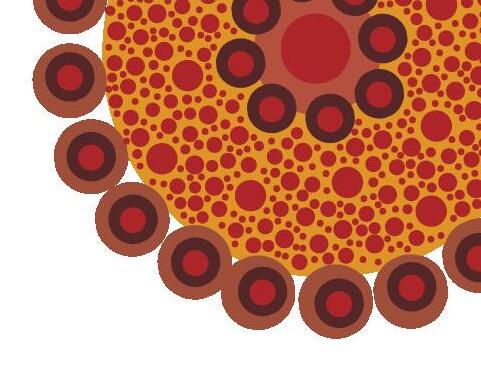
Develop and implement a staff engagement strategy to raise awareness of reconciliation across our workforce.
Communicate our commitment to reconciliation publicly.
Explore opportunities to positively influence our external stakeholders to drive reconciliation outcomes.
Collaborate with RAP organisations and other like-minded organisations to develop innovative approaches to advance reconciliation.
February 2025 Director Education & Business Development
August 2025 Director of Marketing
August 2026 Chief Executive Officer
May 2025 Chief Executive Officer
4 Promote positive race relations through anti-discrimination strategies.
Conduct a review of HR policies and procedures to identify existing antidiscrimination provisions, and future needs.
Engage with First Nations staff and/ or advisors to consult on our antidiscrimination policy.
Develop, implement, and communicate an anti-discrimination policy for our organisation.
Educate senior leaders on the effects of racism.
May 2025 Human Resources Coordinator
May 2025 Human Resources Coordinator
August 2025 Director Governance
August 2025 Director Education & Business Development
As an organisation that is focussed on families, Karitane respects that First Nations families and communities have immense knowledge and strong cultural values of family, nurturing and passing on culture and beliefs from one generation to the next. We recognise the importance of equipping our staff with the confidence to engage with First Nations stakeholders and clients. We want to ensure that we foster a positive and productive work environment for all staff which will additionally support the retention of First Nations staff and a sense of pride of identity across Karitane. Two
5 Increase understanding, value and recognition of First Nations cultures, histories, knowledges and rights through cultural learning.
Provide opportunities for RAP Working Group members, HR managers, Board and other key leadership staff to participate in formal and structured cultural learning.
Develop, implement, and communicate a cultural learning strategy document for our staff.
Conduct a review of cultural learning needs within our organisation.
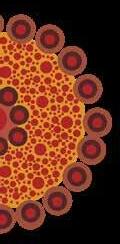
6 Demonstrate respect to First Nations peoples by observing cultural protocols.
Collaborate with Western Sydney University on the development of a unit within the Master of Child and Family Health for registered nurses and midwives on the delivery of culturally safe services to First Nations families.
Consult local Traditional Owners and/or First Nations advisors to inform our cultural learning strategy.
Include an Acknowledgement of Country or other appropriate protocols at the commencement of important meetings.
Increase staff’s understanding of the purpose and significance behind cultural protocols, including Acknowledgement of Country and Welcome to Country protocols.
May 2025 Director Education Business Development
August 2025 Director Education Business Development
September 2025 Director Education Business Development
May 2026 Director Education Business Development
August 2026 Community Programs Manager
February 2025 Chief Executive Officer
May 2025 Senior Aboriginal Health Education Officer & Liaison Officer
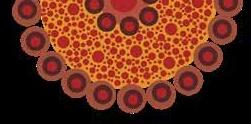
of Karitane’s core values are Respect and Collaboration, and we recognised after making our public statement of support on the Voice to Parliament, that it is more critical than ever to openly be respectful and challenge unhelpful constructs. Our strategy speaks to a productive culture with psychological safety for all staff and families. We are committed to demonstrating respect by employing engaged, skilled people working to create a culturally safe, collaborative and innovative culture.
Action
7 Build respect for First Nations cultures and histories by celebrating NAIDOC Week and other Key significant dates.
8 Build awareness and respect around significant First Nations calendar dates.
Deliverable
Develop, implement and communicate a cultural protocol document, including protocols for Welcome to Country and Acknowledgement of Country.
Invite a local Traditional Owner or Custodian to provide a Welcome to Country or other appropriate cultural protocol at significant events each year.
Review HR policies and procedures to remove barriers to staff participating in NAIDOC Week.
RAP Working Group to participate in an external NAIDOC Week event.
Promote and encourage participation in external NAIDOC events to all staff.
Build awareness and respect around other significant calendar dates including Close the Gap (March), Sorry Day (26 May), and Mabo Day (3 June) National Aboriginal & Torres Strait Islander Children’s Day (4 August), through a series of internal CEO Messages to all staff and Social Media posts.
Ensure staff are aware and supported around leave for significant calendar dates, Sorry Business and leave requirements.
Continue to ensure respect and sensitivity around January 26th by messaging and acknowledging the sorrow of the day for First Nations People and encouraging atendance at Survival Day events.
Timeline
Responsibility
September 2025 Aboriginal Community Engagement and Cultural Lead
August 2026 Chief Executive Officer
May 2025, 2026 Director Clinical Services
First week in July, 2025, 2026
Chief Executive Officer
First week in July, 2025, 2026 Director Marketing
April, June & August 2025, 2026
Chief Executive Officer
March annually Chief Executive Officer
January 2026, 2027 Chief Executive Officer
Karitane recognises that economic empowerment, employment, education and well-being of First Nations communities are fundamental rights. We are committed to developing a progressive and impactful organisation which contributes to these outcomes. The successful recruitment, employment, retention and professional development of First Nations staff along with procurement from First Nations suppliers and partners will strengthen Karitane’s reach, cultural capabilities and identity as an organisation. Karitane will strive to build an inclusive and culturally respectful workplace culture in which our commitment to reconciliation is embedded into everyday practice.
9 Improve employment outcomes by increasing First Nations recruitment, retention, and professional development.

10 Increase First Nations supplier diversity to support improved economic and social outcomes.
Advertise job vacancies to effectively reach First Nations stakeholders.
Review HR and recruitment procedures and policies to remove barriers to First Nations participation in our workplace.
Engage with First Nations staff to consult on our recruitment, retention and professional development strategy.
Build understanding of current First Nations staffing to inform future employment and professional development opportunities.
Develop and implement a First Nations recruitment, induction, retention and professional development strategy.
Develop and implement a First Nations procurement strategy.
February 2025 Director Marketing
May 2025 Human Resources Coordinator
May 2025 Human Resources Coordinator
August 2025 Director Clinical Services
Investigate Supply Nation membership.
August 2025 Director Education Business Development
May 2025 Director Governance and Corporate Services
May 2025 Director Governance and Corporate Services
11 Ensure Karitane’s organisational culture is inclusive and culturally respectful.
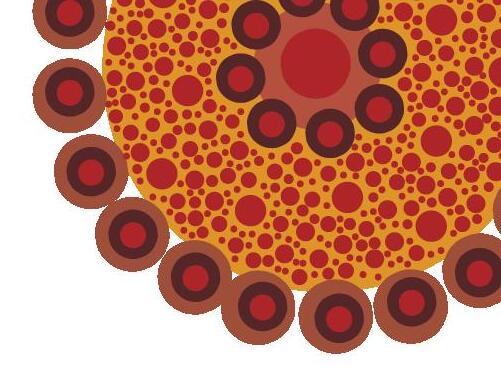
Deliverable
Develop and communicate opportunities for procurement of goods and services from First Nations businesses to staff.
Review and update procurement practices to remove barriers to procuring goods and services from First Nations businesses.
Develop commercial relationships with First Nations businesses.
May 2025 Director Governance & Corporate Services
May 2025 Director Governance & Corporate Services
August 2025 Director Governance & Corporate Services
Include reference to inclusion and cultural respect in all HR practices (such as recruitment, performance agreements, job descriptions, professional development and performance management).
Ensure all existing and new staff attend Respecting the Difference Cultural Training Day
Implementation of the Culturally Informed Practice Principles (CIPP) We aim to implement and embed our culturally informed practice principles (CIPP) and develop the awareness, knowledge, capacities and behavioural repertoire of staff and managers alike.
July 2025 Chief Executive Officer
November annually Director Education Business Development
December 2025 Chief Executive Officer
12 Establish and maintain an effective RAP Working group (RWG) to drive governance of the RAP.
13 Provide appropriate support for effective implementation of RAP commitments.
Maintain First Nations representation on the RWG.
14 Build accountability and transparency through reporting RAP achievements, challenges and learnings both internally and externally.
Establish and apply a Terms of Reference for the RWG.
Meet monthly to drive and monitor RAP implementation.
Define resource needs for RAP implementation.
Appoint and maintain an internal RAP Champion from senior management.
Engage our senior leaders and other staff in the delivery of RAP commitments.
Define and maintain appropriate systems to track, measure and report on RAP commitments.
Contact Reconciliation Australia to request our unique link, to access the online RAP Impact Survey.
Publicly report our RAP achievements, challenges and learnings, annually.

Bimonthly March/May/July 2025, March/ May July 2026 Chief Executive Officer
February 2025, 2026 Chief Executive Officer
May 2025, 2026 Chief Executive Officer
February 2025 Chief Executive Officer
February 2025 Chief Executive Officer
May 2025 Chief Executive Officer
May 2025 Director Governance & Corporate Services
1 August annually Chief Executive Officer
October 2024, 2025 Director Marketing
Deliverable
Investigate participating in Reconciliation Australia’s biennial Workplace RAP Barometer.
Contact Reconciliation Australia to verify that our primary and secondary contact details are up to date, to ensure we do not miss out on important RAP correspondence.
Submit a traffic light report to Reconciliation Australia at the conclusion of this RAP.
Complete and submit the annual RAP Impact Survey to Reconciliation Australia.
Report RAP progress to all staff and senior leaders quarterly.
May 2026 Chief Executive Officer
June annually Chief Executive Officer
15 Continue our reconciliation journey by developing our next RAP.
Register via Reconciliation Australia’s website to begin developing our next RAP.
January 2027 Chief Executive Officer
30 September Annually Chief Executive Officer
February, April, July, October 2025; February, April, July, October 2026 Chief Executive Officer
July 2026 Chief Executive Officer


Karitane Commissioned Artwork
Shareen Clayton
This artwork is titled Connected Journeys and tells the story of families and communities coming together through the support of Karitane services.
Centre Panel: The central feature of the artwork symbolizes Karitane Services as a gathering place and hub, representing the heart of the community. It highlights the many ways families and communities can connect and access valuable support.
Side Panels: The panels surrounding the centre illustrate the shared journey of mums, dads, and extended family members. They show how Karitane Services provides a strong network of care and support, helping families grow and thrive together.
Through its vibrant design and interconnected patterns, Connected Journeys celebrates unity, resilience, and the importance of community in nurturing families.
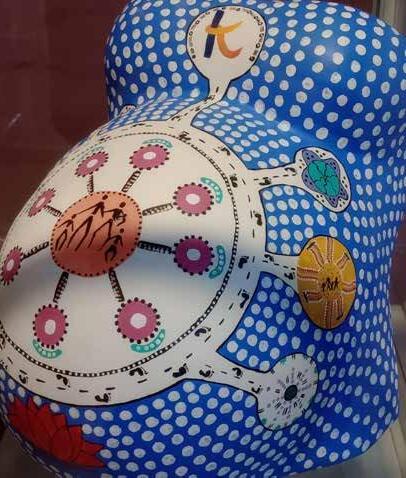
Karitane Commissioned Artwork
Heidi Sainsbury
This belly cast was presented to Karitane as part of the 2016 Close the Gap celebrations to represent the partnership and wonderful working relationship between Karitane, Primary and Community Health’s Child and Family Sustained Health Home Visiting teams: Bulundidi Gudaga (health, pregnancy, healthy baby) and Cannagalleon (her tribe).
The footprints illustrate the journey of families connecting to services to reach Karitane. The cast depicts the pathways between our families, our service providers and our partners at Karitane. The flowers represent Our Mob meeting places for family and friends. The bubbles are the various services such as: Karitane, Bulundidi Gudaga, Cannagalleon, and other government and non-government agencies that support Our Mob.
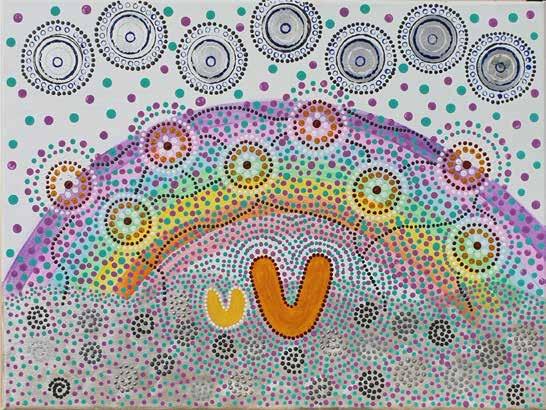
ForWhen Commissioned Artwork
Joy Makepeace
This is a story of a new mum (family) and baby and their journey together through pregnancy and new parenthood. Sometimes when our babies are born, we have to navigate some complex circumstances, including making connections with essential mental health services. Often it can be a very turbulent time and it may feel overwhelming. The rainbow in the background provides a vision of hope, inclusivity and understanding. ForWhen ensures that you are surrounded and connected to services as necessary. The seven stars in the sky will help guide you, look over you and support you while you navigate your way together to better mental health.

Natalie L. Simmons
The Village Connect partners (Karitane, Sonder, and Uniting, funded by DCJ) commissioned a piece of artwork by a First Nations artist from SouthWest Sydney to represent the young parents and families supported by Village Connect, and the journey they may embark upon. Village Connect is built on the principle that what benefits First Nations people benefits everyone, so this artwork was designed to be featured across all marketing materials for the initiative.
The artwork creates a space for reflection, joy, and challenges, and its meaning is encapsulated in the phrase “Ngali Yanhagirri” – a Wiradjuri term meaning “We will go together.” In creating the piece, artist Natalie engaged with a group of young parents and leaders from Village Connect to gain insight into the support provided and the experiences of parents. The artwork incorporates colours chosen by the young parents, with imagery that tells a story of the parenting journey—overcoming challenges, receiving guidance from elders and ancestral spirits, and finding support within the Village created for these young parents.
